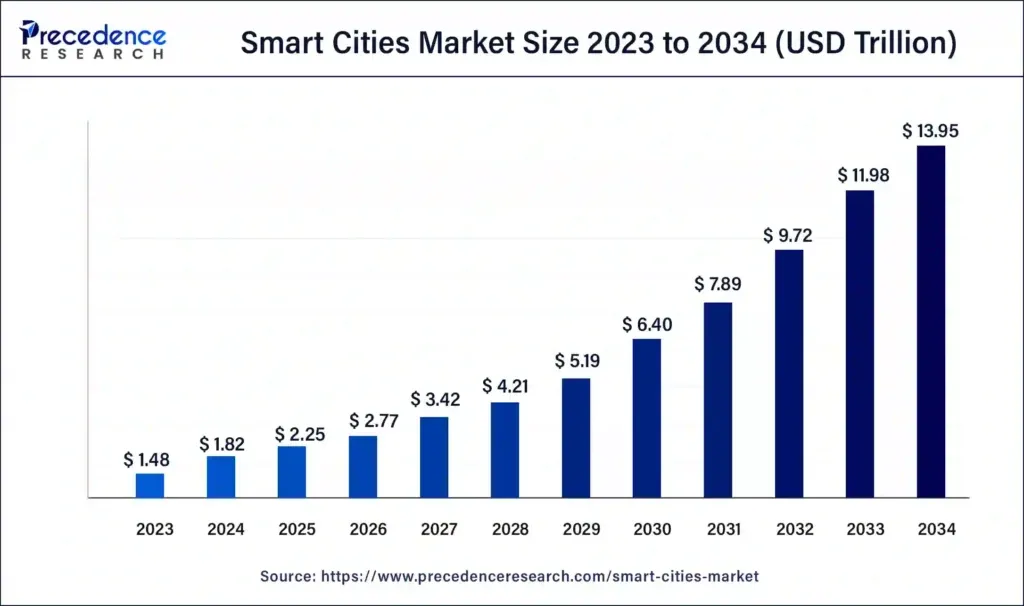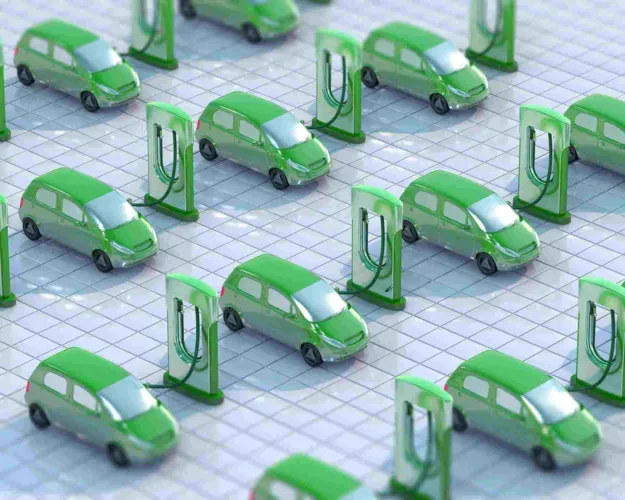Smart City Projects Malaysia are reshaping the nation’s urban landscape, addressing the challenges of urbanization, and fostering innovation in construction. With a market projected to generate USD 118.69 billion by 2030 at a CAGR of 24.12%, these initiatives are set to significantly impact the country’s economy, environment, and quality of life. Let’s see how this initiative drives innovation in the construction industry and enhances urban living!

Urban Growth and the Need for Smart Solutions
From 2010 to 2020, Malaysia’s urban population surged from 20 million to nearly 25 million, now comprising over 77% of the total population. This rapid urbanization has brought challenges like traffic congestion, housing shortages, and resource management. To tackle these issues, the country has embraced the development of Smart City Projects Malaysia as a vital strategy for sustainable urban growth.
Government Frameworks Supporting Smart City Projects Malaysia
The government has been proactive in laying the foundation for Smart City Projects Malaysia through frameworks like the Malaysia Smart City Framework (MSCF) and the Smart City – National Physical Plan 3 (NPP3). These guidelines promote smart governance, environmental sustainability, and innovative technologies to improve urban living and enhance economic opportunities.
Innovation in Malaysia’s Construction Industry
Smart city projects are transforming Malaysia’s construction sector by introducing advanced technologies and sustainable practices. Why are these new approach important?
- Smart Technologies in Construction
The adoption of AI, IoT, and robotics is revolutionizing how buildings are designed and constructed as part of Smart City Projects Malaysia. Additionally, AR and VR technologies are being utilized for visualization and training purposes within the construction industry. These tools help stakeholders visualize projects before they are built, enhancing design accuracy and facilitating better communication among teams. - Sustainability at the Core
With growing awareness of climate change, there’s a strong emphasis on energy-efficient, green building practices. Smart city projects Malaysia prioritize sustainable designs, ensuring reduced energy consumption and long-term environmental benefits. - Economic Advantages
By integrating smart technologies, construction firms can enhance credibility and open new revenue streams. Efficient processes reduce construction time, allowing stakeholders to achieve returns on investment faster.
Sustainability and Smart Urban Living
Smart City Projects Malaysia aim to create livable, environmentally friendly urban spaces. Features such as energy-efficient buildings, integrated public transport systems, and smart governance tools make these cities more adaptive to modern needs. Furthermore, smart technologies are being employed for efficient waste management systems, which help reduce pollution and improve overall urban cleanliness. This shift not only addresses environmental concerns but also enhances residents’ quality of life.
Economic Impacts of Smart City Projects Malaysia
The economic benefits of Smart City Projects Malaysia extend beyond construction. The anticipated market revenue of USD 118.69 billion underscores the transformative potential of these initiatives. Smart cities attract investments, create jobs, and stimulate economic growth while positioning Malaysia as a regional leader in urban innovation.
A Brighter Future with Smart Cities
Smart city projects Malaysia exemplify the nation’s commitment to innovation and sustainability. They address immediate urban challenges while paving the way for a resilient, tech-driven future. As these initiatives grow, they will continue to revolutionize urban living and redefine industry standards in construction.






